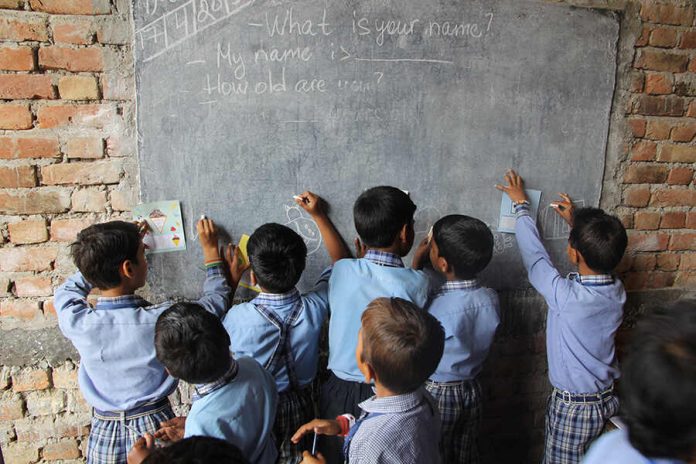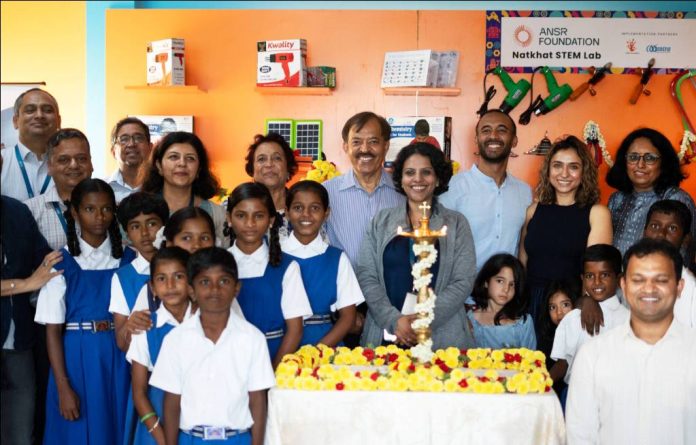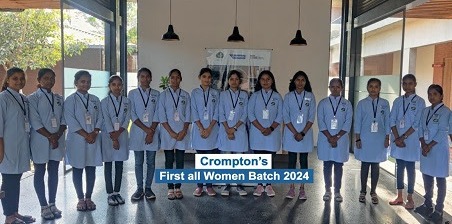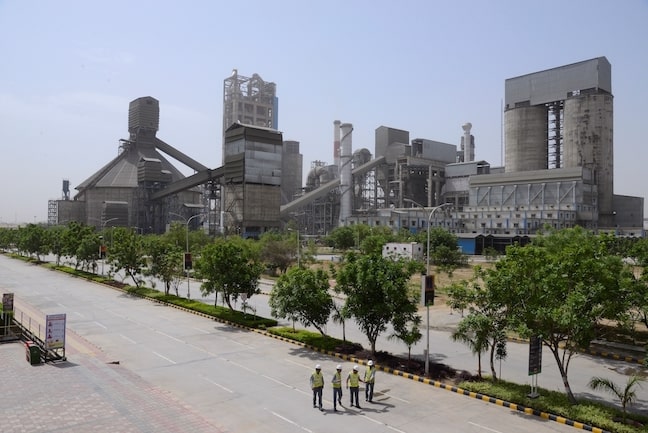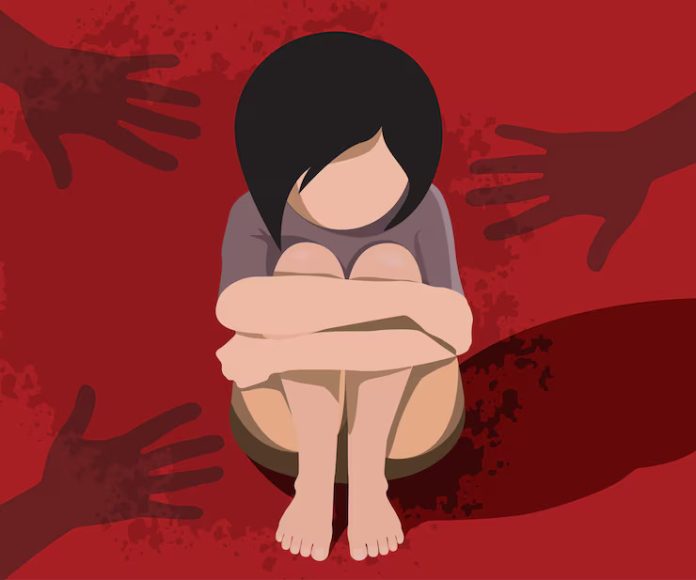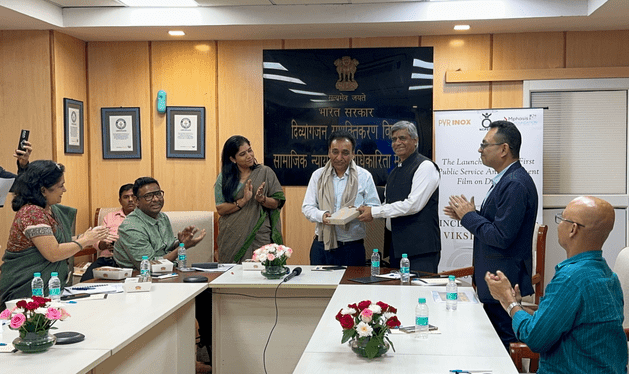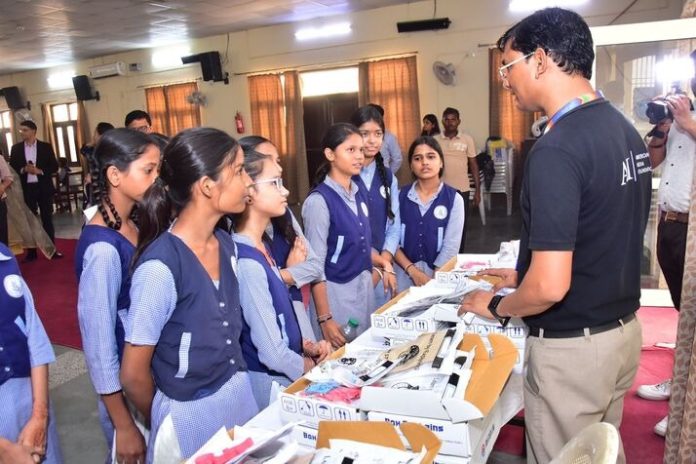CSR Foundation launched in Bengaluru to empower underrepresented communities
Bengaluru, India: ANSR, the market leader in setting up global centers for the world’s top enterprises, is thrilled to launch the ANSR Foundation.Starting with a series of programs forchildren and young adults, the foundation’s long-term goal is to impact economicdisparityand gender equality while fostering a new generation of technology trailblazers.
Since its founding, ANSR has created over 150,000 jobs in India and brought in more than $2B in investments. The company has a strong track record of increasing participation of women in the workforce and to creating a more equitable and inclusive tech ecosystem.
“ANSR Foundation is committed to creating a world where we can dismantle barriers for underserved communities. Through the Foundation we are taking impactful steps to empower today’s youth and both men and women by providing them with scholarships and resources to pursue education in technology, regardless of background and gender,” said Lalit Ahuja, CEO of ANSR.
The ANSR Foundation isembarking on a variety of programs, including:
• STEM-dedicatedclassrooms:Engaging classrooms with STEM-focused programs and teachers have been set up in selected Bengaluru schools in collaboration with NGO partners Mantra4Change and Let’s Do Some Good.This hands-on approach aims to provide young people with a more innovative future and the skills and confidence neededto thrive in the tech industry.
• Scholarships: ANSR Foundation has recently with the prestigious Birla Institute of Technology and Science (BITS) Pilani and has created scholarships and a PhD fellowship for students, a commitment spearheaded by ANSR CEO and BITS Pilani alumni Lalit Ahuja.
• ANSR Gives Back: Volunteer programs currently encourage ANSR employeesand their families to come together and engage with communities in a meaningful way.Other upcoming programs include mentorship guidance and support from experienced staff alongside internships within the organization for aspiring professionals. The foundation will offer training programs to help individuals develop the skills and knowledge they need to succeed in competitive tech careers.
The ANSR Foundation places special emphasis on addressing socio-cultural gaps and building pathways to success for talented individuals. “Access to opportunity goes beyond education. It’s only the starting point to creating an environment to feel supported and inspired.” said Ahuja.“The problem-solving and workforce-ready skills young people gain is what prepares them with the capabilities to make informed decisions about their futures.”
Disclaimer: This media release is auto-generated. The CSR Journal is not responsible for the content.
CSR for Gender Equality: All-women Electrician Training Program launched in Maharashtra
Mumbai, India: Crompton Greaves Consumer Electricals Ltd. is proud to announce the launch of its second batch of the Saksham program, a pioneering initiative aimed at empowering women in the electrical industry. In collaboration with Tata Strive, this unique program empowers young women from underserved communities by training them in non-traditional STEM roles, paving the way for a more inclusive future where women can excel.
Building upon the success of the first batch, Crompton’s Saksham program continues to address the gender gap in the electrical industry by providing women with the necessary skills and certifications to excel in technical roles. The program’s comprehensive curriculum combines classroom learning with hands-on training, equipping participants with the practical knowledge and confidence to pursue successful careers.
The Indian electrical industry has historically faced a significant gender disparity, with women underrepresented in technical roles. This disparity can be attributed to various factors, including societal stereotypes, limited access to relevant training opportunities, and a lack of awareness about career options in the sector. Moreover, in rural areas, cultural norms and parental concerns often hinder girls’ participation in technical education and training programs.
To address these challenges, Crompton has partnered with Tata Strive to launch the Saksham program, a pioneering initiative aimed at empowering young women in Maharashtra to pursue careers in the electrical industry. Through this program, Crompton has successfully trained over women from villages across Ahmednagar and Nashik, equipping them with the necessary skills and certifications to become skilled assistant electricians.
The Saksham program does more than just provide technical training-it is designed to:
Empower women: Equip women with the confidence and skills to pursue non-traditional careers, providing local youth with livelihood opportunities and fostering economic independence.
Break down barriers: By offering training and placement opportunities, the program actively challenges societal norms and paves the way for greater inclusivity in the workforce.
Create role models: Graduates, many of whom are first-generation learners, serve as role models for future generations, inspiring other women to follow in their footsteps.
Talking about the company’s initiative, Promeet Ghosh, MD & CEO, Crompton Greaves Consumer Electricals Ltd. said, “At Crompton, we believe that having a diverse workforce is not just the right thing to do, it’s essential for our continued success. That’s why we’re excited about the Saksham program. This program goes beyond just training. We’re opening doors for these young women to enter a field that has traditionally been off-limits, inspiring a new generation of women to pursue careers in the electrical sector. We’re confident that these graduates will not only have successful careers as electricians, but they will also serve as role models for others.”
He further added, “We believe that initiatives like Saksham are not just good for business, but they’re also essential for creating a more equitable and inclusive society. We’re committed to playing our part in making a difference, and we’re excited to see the positive impact that the Saksham program will have on the lives of the participants and the electrical industry as a whole.”
The 3-month residential program certified by National Skill Development Corporation (NSDC) and Tata Strive began in January 2024 and combined classroom learning with practical on-the-job training, ensuring participants were equipped with the necessary skills to excel in their chosen field. Moreover, Tata Strive, Crompton’s partner in this initiative, is also committed to ensuring a placement rate of 70% for the graduating trainees. Additionally, nearby industries have also expressed interest in providing job opportunities to these highly skilled women.
Through a strategic partnership with Mahila Arthik Vikas Mahamandal (MAVIM), Crompton ensures that placements are sustainable and that participants receive continued guidance and evaluations throughout their first year in the workforce.
Leveraging its expertise in the electrical domain, Crompton is therefore committed to providing these women with world-class training, preparing them for successful careers.
Disclaimer: This media release is auto-generated. The CSR Journal is not responsible for the content.
NTPC and Indian Army Join Hands for Round-the-Clock Power Supply using Green Hydrogen
New Delhi, India: NTPC has partnered with the Indian Army to establish a Solar Hydrogen-based Microgrid at Chushul, Ladakh. This significant step will provide a stable power supply using Green Hydrogen in off-grid Army locations. Today, Hon’ble Defence Minister Shri Rajnath Singh laid the foundation stone of this unique project through video conferencing in the presence of Chiefs of India defence services, CMD, NTPC and other senior officials from Ministry of Defence, Indian Army and NTPC.
NTPC has designed this innovative Solar Hydrogen-based microgrid system to operate independently, using hydrogen as an energy storage medium to supply 200kW of power round-the-clock throughout the year. This system will replace existing diesel gensets at off-grid Army locations, providing a sustainable power supply despite harsh winter conditions, where temperatures drop to -30°C at an altitude of 4,400 meters. NTPC will maintain the project for 25 years, aiming to support Indian soldiers stationed in these strategically significant tough terrains and challenging climate.
The Solar-Hydrogen microgrid is set to replace existing diesel generators currently in use at off-grid Army locations. These systems offer numerous advantages, including the integration of renewable energy sources, a stable power supply under adverse conditions, reduced carbon emissions, and the promotion of a cleaner and sustainable energy ecosystem as they are highly scalable and suitable for various applications. Moreover, these systems combine the reliability of battery storage with the extended energy storage capability of hydrogen, ensuring a consistent power supply.
Given Ladakh’s high solar irradiance and low temperatures, this project will facilitate the production and utilization of green energy, eliminating reliance on fuel logistics and enhancing self-sufficiency in remote areas affected by road connectivity disruptions. Once operational, it would usher in a new era of decarbonisation of the defence sector far off the Himalayas.
Additionally, NTPC started a trial run of a hydrogen bus in Leh recently towards achieving its renewable energy targets and carbon neutrality in Ladakh. The company is further setting up a hydrogen fuelling station and solar plant along with five fuel cell buses for operation on intracity routes in Leh.
NTPC is committed to achieving 60GW of renewable energy capacity by 2032 and becoming a major player in green hydrogen technology and energy storage domain. The company is pursuing several initiatives toward decarbonisation, including hydrogen blending, carbon capture, electric buses, and smart NTPC townships.
Disclaimer: This media release is auto-generated. The CSR Journal is not responsible for the content.
Cyclone Dana: Orissa and West Bengal Put on Red Alert Ahead of Calamity
What started as a deep depression in the Bay of Bengal has intensified into a cyclone called ‘Dana’. The cyclone is likely to hit the coast of Odisha and West Bengal between October 24-25, with a wind speed of 100 to 110 km/h, as per the India Meteorological Department. More specifically, the coasts between Puri and Sagar Island, Bhitarkanika National Park and Dhamra Port of Odisha will be affected. The Dana cyclone started to intensify recently by October 23, 2024.
Both states are preparing to evacuate more than 10 lakh people from the coastal districts. A lakh individuals have already been moved out of West Bengal to shelter homes while in the state of Orissa, around three lakh people identified living in the danger zone have been evacuated on Wednesday evening.
Other precautionary steps include the cancellation of eastern and south-eastern Railways, Ferry services in the Sundarban area and Flight operations at Netaji Subhas Chandra Bose International Airport in Kolkata. The West Bengal government has also announced the shutting of schools and academic institutes in seven districts close to the Bay of Bengal. Orissa, as well, has decided to close all educational institutions. The government of both states have also issued precautionary advisories to fishermen, asking them to avoid venturing into the sea till the storm cools down. Residents in low-lying areas are being evacuated to relief camps safely.
The National Disaster Response Force or NDRF has deployed 56 teams across five states to combat Cyclone Dana. In support of that, the Indian Coast Guard is also on high alert. As a precautionary effort, vessels and aircraft are being positioned strategically to respond swiftly to any emergency at sea. the ICG has been monitoring the cyclone closely to take proactive steps.
Naming a Cyclone
A cyclone is a storm formed from a low-pressure area in the sea, here in the Bay of Bengal. This low-pressure whirlpool calms down only in the absence of water, and so stops after hitting the coast. Along with it, it brings heavy rainfall.
The World Meteorological Organisation uses a rotating list of names that are contributed by its member countries in the North Indian Ocean region. As per the list, the turn to name the cyclone was fulfilled by Qatar’s ‘Dana’.
The cyclone is named by Qatar, which literally translates to generosity in Arabic. But the word ‘Dana’ also symbolises ‘the most perfectly sized and exquisite pearl’. This Arabic word stands for the cultural significance of some coastal regions of the Arab state known for pearl diving, like the Persian Gulf.
Other than making the process easy and global, the naming practice also helps to streamline communications of public safety across different states. It also creates a sense of solidarity and brings harmony in the international waters.
CSR in Disaster Management
Amazon India, in May 2024, announced the pre-positioning of its disaster relief material to respond to communities struck in natural disasters in less than 72 hours. This e-commerce giant will make use of its already existing logistics network to move relief items, which include shelter and hygiene kits, quickly and effectively across the entire country. This is part of the company’s corporate social responsibility effort.
Amazon India was smart in investing its corporate social responsibility funds by using its already existing logistics chain to transport important materials in times of disaster. This comes as the vast Indian subcontinent has experienced major earthquakes, landslides, cyclones, and floods in the past without any informed relief effort.
Specifically in case of cyclones, India enjoys a huge coastline of more than 7000 km bordering both the mainland as well as the islands. This makes more and more residents living in lowly areas prone to cyclone storms, like in the case of cyclone Dana.
It is precisely the time when companies divert their corporate social responsibility funds towards helping the government come up with more sophisticated relief programs. It is a win-win situation because till now, there has not been any major impact of the cyclone and lives are safe. The government has been strategic in planning for the future, and this can be further strengthened if companies start to divert their corporate social responsibility fund towards coastal areas of West Bengal and Orissa. CSR money to save lives in the face of natural disasters can create impact.
CSR: Cement and RMC Company collaborates with UCLA to advance cement industry decarbonisation
UltraTech Cement Limited, India’s largest cement and ready-mix concrete (RMC) company, announced the signing of a collaboration agreement with the Institute for Carbon Management (ICM) at the University of California, Los Angeles (UCLA) to pilot a groundbreaking new technology The Zero Carbon Lime (ZeroCAL) developed by ICM that can significantly reduce carbon dioxide emissions from cement production. ICM, in partnership with UltraTech, will build a first-of-a-kind demonstration plant for the technology at one of UltraTech’s integrated cement manufacturing units.
The Zero Carbon Lime (ZeroCAL) process, developed by ICM researchers, can eliminate nearly 98% of carbon dioxide emissions associated with limestone decomposition in cement manufacturing. UltraTech will be the first company globally to implement the ZeroCAL process at scale through a demonstration plant that will produce several metric tons of zero-carbon lime per day. UltraTech’s partnership with UCLA aligns with its broader sustainability goals and its focus on developing and adopting innovative technologies to decarbonise its operations.
“UltraTech is fully committed to realising its Net Zero Goal by 2050. As an industry leader UltraTech is constantly exploring partnerships to overcome the technological barriers to decarbonise cement manufacturing.” said Mr. K C Jhanwar, Managing Director at UltraTech. “We are excited to collaborate with UCLA on this groundbreaking project. Partnerships like these, which place an emphasis on developing and deploying new and emerging technologies, will be a key enabler in our sector’s efforts to accelerate decarbonisation and deliver carbon neutral concrete by 2050,” he added.
“The ZeroCAL approach is a powerful solution to eliminate carbon emissions associated with the process of cement production within the existing industrial paradigm of Ordinary Portland Cement (OPC) clinker production and without a need for carbon capture and storage,” said Professor Gaurav Sant, ICM director and the study’s corresponding author and the Pritzker Professor of Sustainability at the UCLA Samueli School of Engineering. “It effectively eliminates the carbon dioxide emissions resulting from limestone’s decomposition while providing clean hydrogen and oxygen to heat the cement kiln,” he added.
To accelerate its decarbonisation efforts, UltraTech is collaborating with technology startups to explore the use of emerging decarbonisation technologies including kiln electrification and carbon capture & storage.
Disclaimer: This media release is auto-generated. The CSR Journal is not responsible for the content.
Madhya Pradesh Govt planning to support impregnated minor rape victims
In a compassionate move to support minor rape victims in the state, the Madhya Pradesh government, under the leadership of Chief Minister Dr. Mohan Yadav has made a major announcement. The state government is planning to provide assistance and support to the pregnant minor rape victims, who get pregnant as a result of rape and their children. The proposal was approved in a cabinet meeting held on Tuesday.
The cabinet has allocated a fund of Rs 10 lakh to each District Collector across the state to provide essential support for minor rape victims who become pregnant. The money will be provided from the Nirbhaya Fund, which is an amount of money set up by the central government to support initiatives that ensure the safety of women and children. The fund was announced in 2013 by the then Finance Minister, P. Chidambaram, following the Delhi gang rape case in 2012.
The initiative ensures that both the victim and her child are supported throughout their recovery and development.
The scheme will be implemented across all 55 districts of the state under Sections 4 and 6 of the Protection of Children from Sexual Offences (POCSO) Act, 2012 (amended 2019).

The fund allocated to the District Collector will be used for:
Dedicated units will be established for babies born as a result of sexual assault.
Psychological counselling will be provided to help the minor victims recover from mental trauma caused by rape.
The fund will also be used to ensure that the education of the victim is not interrupted.
Victim will also be provided vocational training if required. The government offers financial assistance of Rs 4,000 per month to those opting for vocational training. Support will be provided till the victim turns 23 or gets employed.
Eligibility
Financial support will be provided only to those victims who get pregnant as a result of rape. As per the POCSO Act (Protection of Children from Sexual Offenses) under Section 6, the scheme will only apply in cases of aggravated penetrative sexual assault. The victim will have to submit a copy of the FIR to gain benefits of the scheme.
Recent cases of minor rape in Madhya Pradesh
A visually challenged girl was allegedly raped by a temple priest in Shivpuri district of Madhya Pradesh within the temple premises. The victim’s family recently filed police complaint after she became pregnant.
A 5-year-old girl found dead in a house in a multi-storeyed building in Bhopal in the last week of September, who was allegedly raped and murdered. The girl’s body was found in a water tank at the apartment building, with police arresting her neighbour for allegedly raping and murdering her.
In August this year, the police arrested a 69-year-old man for allegedly raping a teenage girl in Madhya Pradesh’s Shahdol district. The accused allegedly raped the 16-year-old girl after finding her alone at her home, as revealed by the Beohari police. A police complaint was filed by the minor’s family on 15th August.
A three-year-old girl was allegedly raped by her school teacher in the state capital Bhopal on 18th September this year. The accused has been booked and arrested.
CSR: India’s First Public Service Awareness Film on Disability
In a unique, first-of-its kind initiative 1000 PVR INOX screens will soon start showing a public service awareness films reaching millions of viewers over two weeks. The Public Service Awareness film was launched by Rajesh Agarwal, Secretary, Department of Empowerment of Persons with Disabilities, Ministry of Social Justice and Empowerment on Wednesday.
The National Centre for Promotion of Employment for Disabled People (NCPEDP) along with its partners PVR INOX Limited, the largest and most premium film exhibitor in India, Delhi Metro Rail Cooperation (DMRC) and Mphasis F1 Foundation on Wednesday announced the launch of “Inclusive Bharat Viksit Bharat,” film focused on disability. This film addresses the everyday challenges faced by individuals with disabilities and attempts to instill a deeper understanding and compassion among audiences nationwide.
The first-of-its-kind film serves as a powerful catalyst for change, encouraging viewers to engage in meaningful discussions about disability rights and the importance of inclusion. Through compelling narratives and real-life stories, the film aims to create an emotional connection that inspires action and attempts to dispel the stereotypes around disability.
Secretary Shri Rajesh Agarwal, Department of Empowerment for Persons with Disabilities (DEPwD) said, “Govt of India remains steadfast towards creating a society where every person with disability can lead a dignified life. This public service announcement is a critical tool in raising awareness about the barriers faced by persons with disabilities, and it highlights the urgent need for collective responsibility in ensuring accessibility and inclusion. We commend NCPEDP, Mphasis F1 Foundation and PVR Inox for their efforts in bringing this important message to the forefront and look forward to seeing its positive impact across the nation.”
Deepa Menon, Senior Vice President, Corporate Communications and CSR, PVR Inox Limited said “Cinema has always been a powerful storyteller, shaping perceptions and influencing social change, and now it’s amplifying the voices of millions of people with disabilities who have often been marginalized and left unheard, shedding light on their experiences and the urgent need for a more inclusive society. This film aligns with our commitment to make cinema accessible to all through multiple initiatives such as sensory screenings and facilities for people with disabilities, ensuring that everyone has an equal opportunity to experience the magic of cinema. All in all, we are proud to be part of this vital initiative, and through our extensive network of theatres, we aim to amplify this essential message, inspiring audiences to embrace a more inclusive perspective.”
Deepa Nagraj, Global Head of Communications, Sparkle Innovation Ecosystem, ESG, and CSR at Mphasis applauded the initiative and said, “At Mphasis F1 Foundation, we are committed to fostering an inclusive society where every individual, regardless of ability, has the opportunity to thrive. This PSA is an important step toward raising awareness about the challenges faced by persons with disabilities and advocating for a more accessible and equitable environment. By bringing this message to theatres across the country, we aim to create mass awareness and promote collective action to build a more inclusive India. We are proud to support NCPEDP in this crucial initiative that aligns with our vision of driving positive social change through meaningful action.”
“As India strives to become Viksit by 2047, the idea of inclusivity and issues of disabled people should get mainstreamed. This film is a powerful step toward that change, highlighting the importance of inclusivity and role it plays in fostering a community where everyone has the opportunity to succeed and contribute to a richer, more diversified society. The power of the film to promote attitudinal change remains significant,” said Arman Ali, Executive Director, NCPEDP.
This one-of-a-kind film, also supported by Delhi Metro Rail Corporation (DMRC), draws attention to the invisible yet persistent challenges that people with disabilities face every day, while painting a vivid picture of what a truly inclusive India could look like if we come together to break down these barriers. From navigating public spaces to accessing opportunities, the film envisions a society where inclusion is at the heart of development.
Disclaimer: This media release is auto-generated. The CSR Journal is not responsible for the content.
STEMpowering Initiative: Project Digital Equalizer to Boost STEM Education in Uttar Pradesh
Covestro (India) Private Limited is proud to announce the launch of one of its largest CSR initiatives, the STEMpowering, Digital Equalizer Project, in collaboration with the American India Foundation Trust. This transformative initiative, inaugurated today, is designed to bridge the digital divide in under-resourced public schools across Uttar Pradesh by training over 125 teachers and reaching over 10,000 students in STEM (Science, Technology, Engineering, and Mathematics) education, preparing a future-ready generation.
The Digital Equalizer program will be implemented across 25 government schools, primarily focusing on students in grades 6 to 10. Over the next three years (2024–2027), the project is expected to directly impact up to 10,000 unique beneficiaries. The initiative aligns perfectly with the company’s mission of fostering innovation and social responsibility, particularly in rural and semi-urban regions.
Empowering through STEM:
As part of the initiative, teachers will undergo comprehensive training, equipping them with modern tools and techniques to integrate technology into their classrooms. Students will be exposed to engaging STEM concepts through workshops, external visits, annual showcases, and exhibitions. Regular assessments and headmaster meetings will ensure that the program’s objectives are being met and continuously monitored for success.
Commenting on the launch, Kavita Desai, Head of Corporate Communications & Corporate Social Responsibility at Covestro (India), said:
“This initiative exemplifies our belief in driving impact beyond business. By empowering the next generation with essential STEM skills, we are not only contributing to their personal development but also to the growth of the community and the country. Together, we can push boundaries and create future innovators who will shape a better tomorrow.”
Key Highlights of the Digital Equalizer Project:
Reach: 25 schools across Uttar Pradesh
Focus: STEM education for students in grades 6 to 10
Beneficiaries: 10,000+ students, 125+ trained teachers over three years
Goal: Preparing government school students, especially girls, for future STEM opportunities
Through this initiative, Covestro (India) reaffirms its commitment to fostering innovation, empowering education, and standing together for a brighter future. The STEMpowering, Digital Equalizer project was inaugurated with great enthusiasm, and the event takeaway emphasized the transformative potential of STEM education in shaping the future of young learners across rural Uttar Pradesh.

